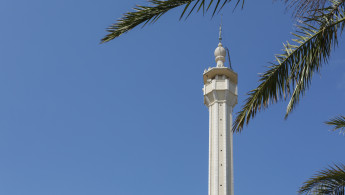Missing Lebanon Sunni cleric who criticised Hezbollah killed by relatives
A Muslim cleric who went missing earlier this week was killed by people from his northern hometown in Lebanon with whom he had been at odds with for more than a decade, security officials said Saturday.
Sheikh Ahmad Rifai, a Sunni cleric, was last seen in the northern city of Tripoli on Monday evening and his car was found days later in a village a few kilometers south of the city. His family said they lost contact with him Monday night after they tried to call him and found that his cellphone was turned off.
Rifai was the imam of the main mosque in the northern town of Qarqaf in the impoverished northern Akkar region and was known for his fiery speeches in which he used to blast the Iran-backed Hezbollah.
There were concerns that Rifai’s case would incite sectarian tensions in the deeply-divided country since he was a harsh critic of the powerful Shia group Hezbollah as well as the Syrian government and Iran.
It turned out Rifai was killed by people from his hometown, including some relatives, with whom he had been at odds with since 2012, the officials said on condition of anonymity because they were not authorised to speak to the media. They said that years ago some residents and the cleric accused one of Rifai's relatives who was Qarqaf's mayor of corruption.
The killing came at a time when Lebanon has been without a head of state since the term of President Michel Aoun ended in late October with no president elected. Lebanon is currently run by a caretaker government as the country sinks in its worst economic crisis in its modern history that started in October 2019.





 Follow the Middle East's top stories in English at The New Arab on Google News
Follow the Middle East's top stories in English at The New Arab on Google News


